The largest food market in Georgia’s capital Tbilisi is an institution. It has expanded over the years and now covers an entire district. Its name, Dezerter Bazaar, recalls a conflict over 100 years ago that, as so often in Georgia’s history, has to do with Russia. The name (which translates as Market of Deserters) comes from soldiers who fled the Russo-Georgian War in 1921 and sold their weapons and equipment on the market square. Russia has been interfering in Georgia’s affairs for centuries.
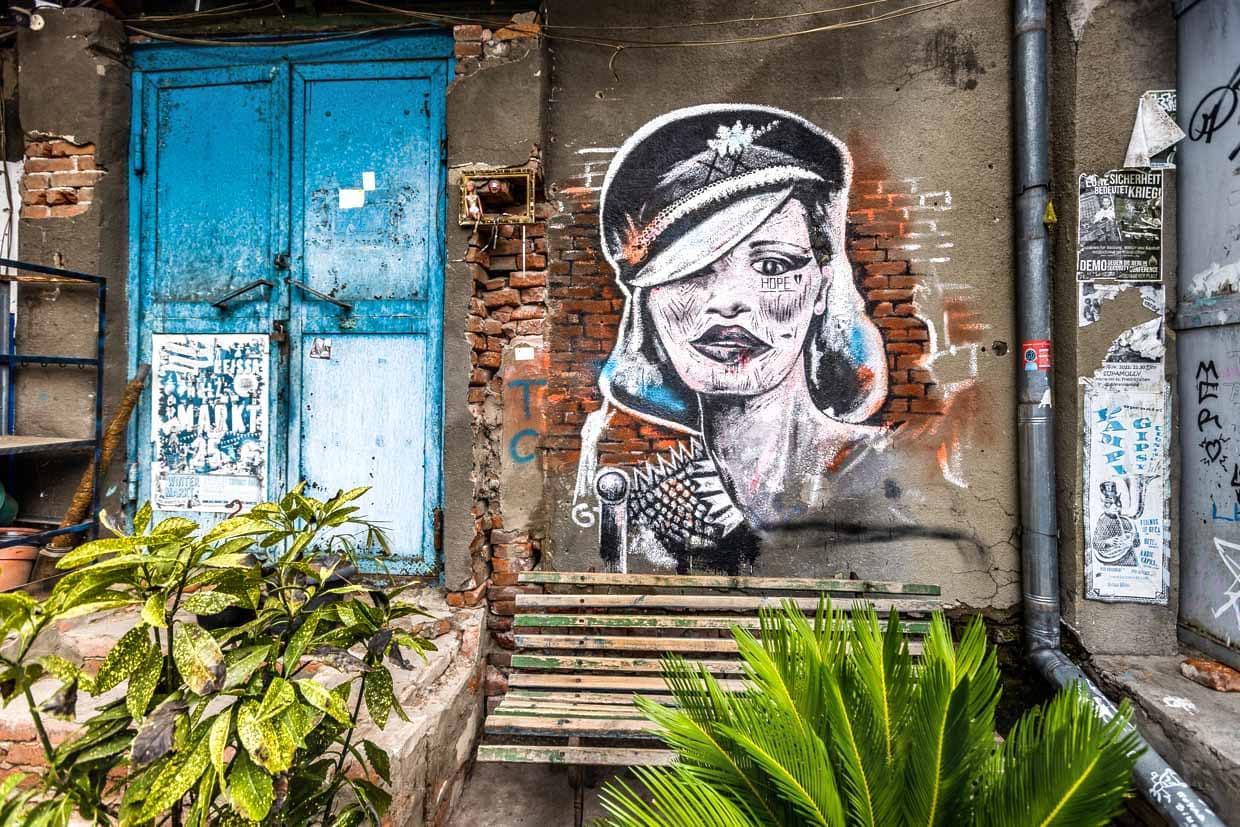
In 2024, Georgia is once again facing an uncertain future. The small country in the South Caucasus lies on the same latitude as Rome. Countless graffiti in the streets bear witness to the desire to become part of the European Union. Since 2010, two years after Russia’s military attack on Georgia, the Peace Bridge has spanned the Mtkvari River, connecting the old town with a park and the presidential palace. European flags fly everywhere in the city, flanked by blue and yellow Ukrainian flags since 2021. Graffiti on house walls curse Putin. According to surveys, 70 percent of people want to join the EU. The parliamentary election in October 2024 was seen as a directional election, but the result favors the Russia-friendly Georgian Dream party. How does this all fit together? The people of Georgia are in turmoil.
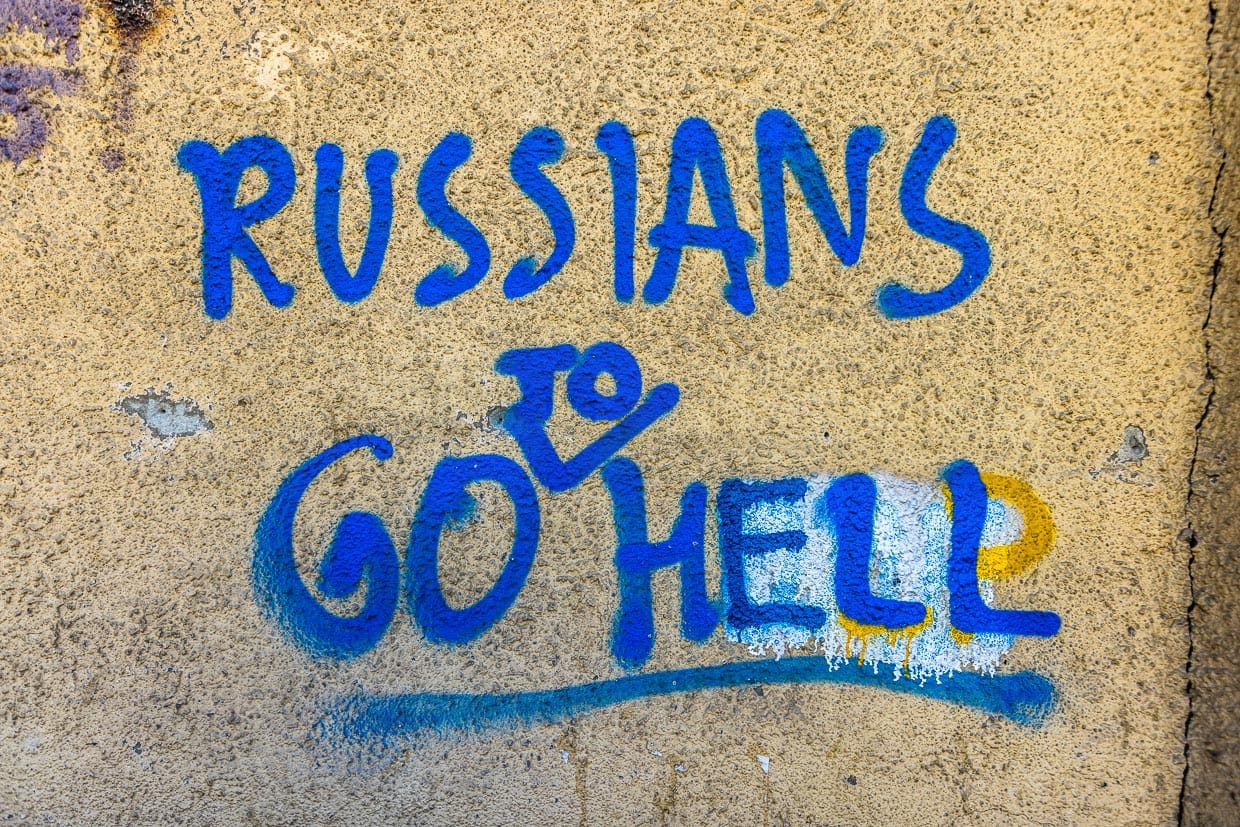
Uncertain future, also for the Dezerter Bazaar
At the beginning of 2024, the city council presented plans to convert parts of the Dezerter Bazaar into a shopping center. The main building is to be demolished and half a block with outdoor stalls is to be cleared. It is estimated that over 100 business owners would be directly affected and even more would have to relocate during the construction work. A deadline for the partial evacuation passed in August. Since then, various dates have been circulating: perhaps after the elections in October, perhaps not until 2025 or later. The only thing that seems certain is that the renovation is coming. A visit to this lively market should not be put off. Who knows when the diggers will arrive?
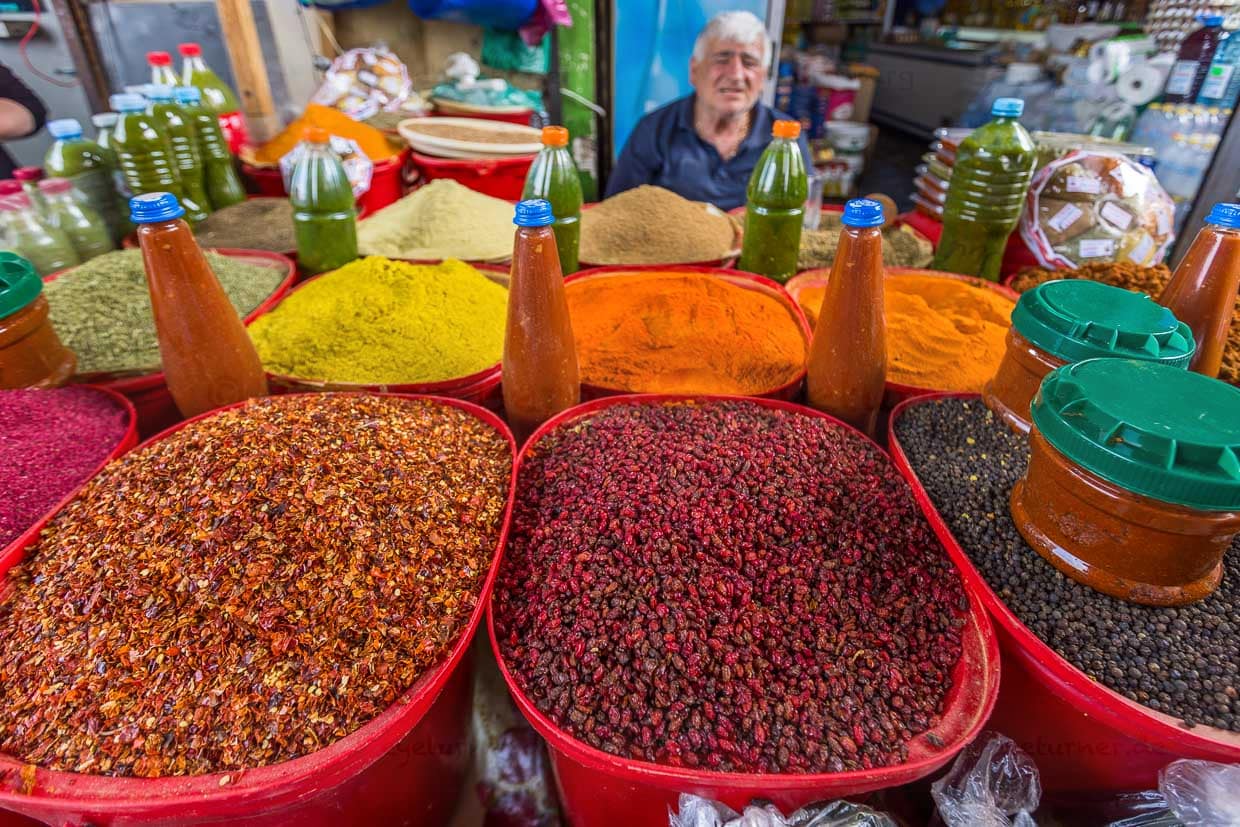
Spice pyramids and pickled gherkins
The Dezerter Bazaar is primarily a fruit and vegetable market for wholesalers and private customers. In summer, fresh produce is grown in Georgia. There are spices, nuts, pickles, cheese and meat. The bazaar used to have its own wine section, but today only a few traders offer local wines. Tasting and shopping with all your senses is encouraged. Even if you don’t speak English, you can get by with sign language and a sense of taste.
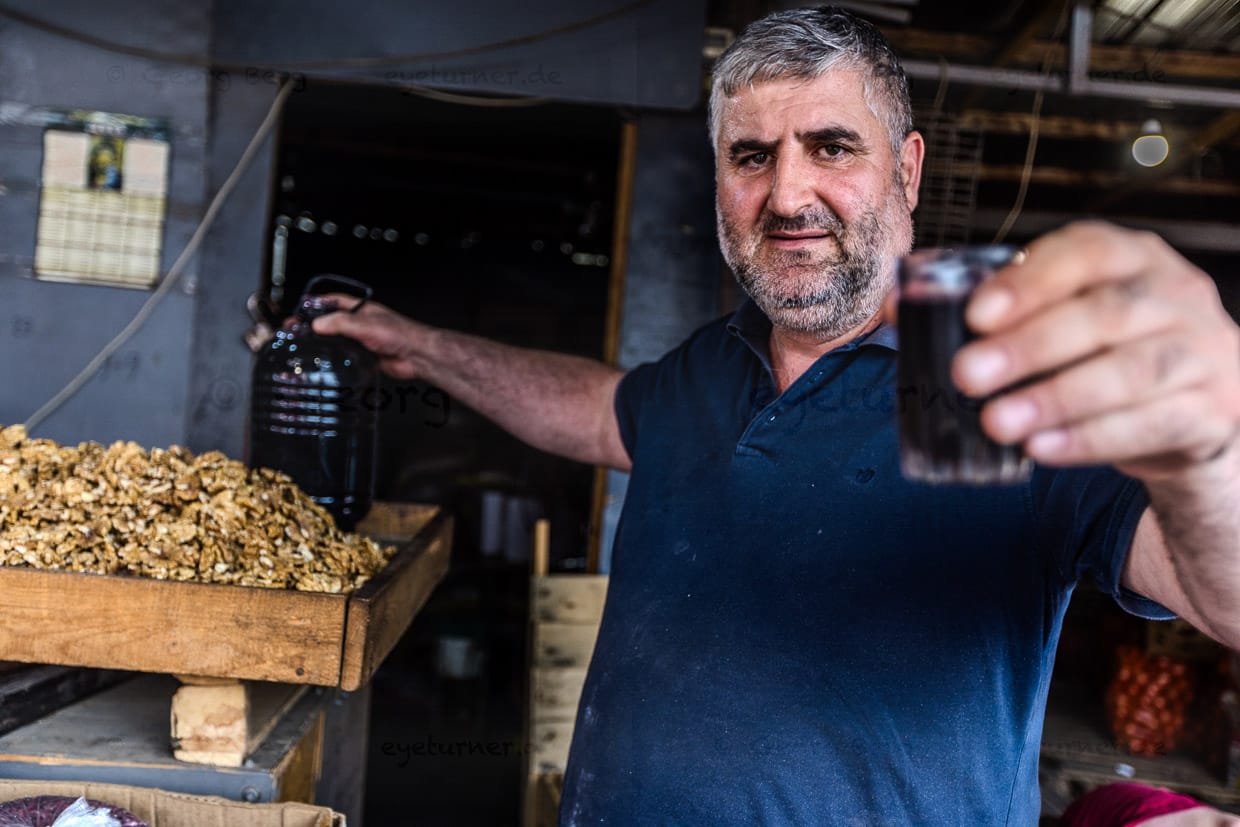
Churchela – nut on a thread
An eye-catcher at the bazaar is the Georgian confectionery churtchela. Nuts, mostly hazelnuts or walnuts, are strung on a thread and covered with pelamushi, a boiled grape juice with starch flour. This sweet, which hangs from the stalls like colorful drip candles, has a long tradition in Georgia. Churtschchelas are a nutritious snack on the often long and arduous routes through the rugged landscape of the Caucasus. Today they have cult status and are jokingly referred to as Georgian Snickers.
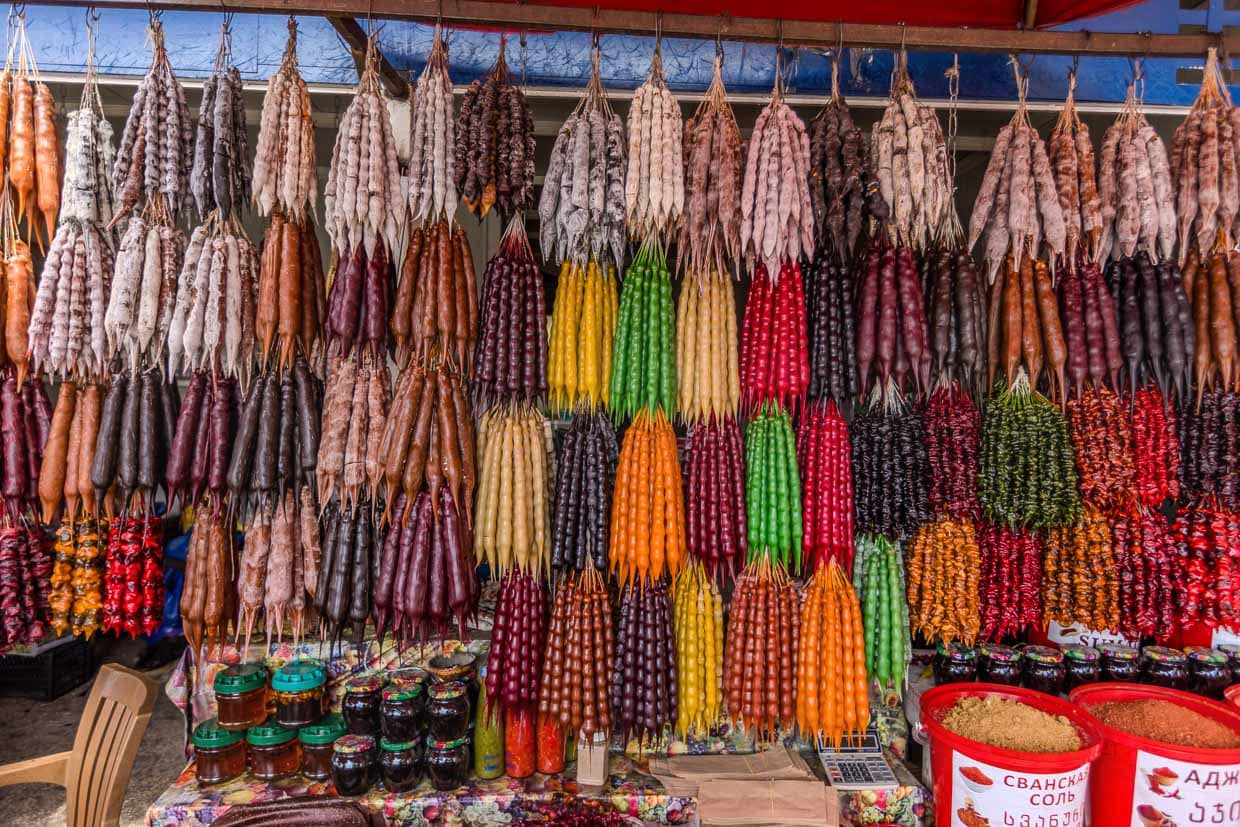
Vintage under corrugated iron
History and taste come together at Tbilisi’s largest open-air market. In addition to fresh produce, spices and traditional Georgian specialties, there are also second-hand goods sorted by product group. Sneakers are stacked up to the corrugated iron roof. Anyone looking for the retro shoe of their dreams here will need perseverance and luck.
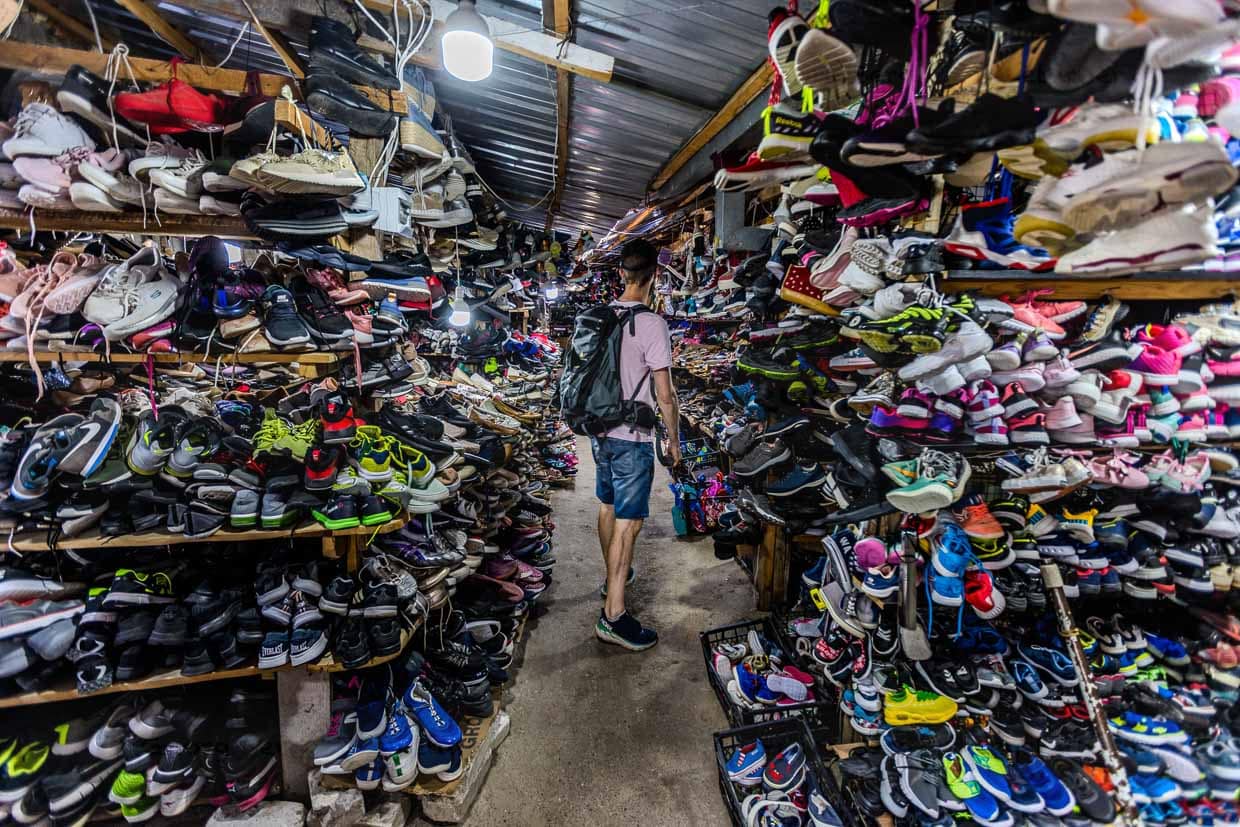
Unvarnished and from life
The Dezerter Bazaar is the ideal place to get to know Georgian culture and cuisine. Life pulsates here, it is chaotic and rough. The traders are warm and open to strangers. Proud of their products, they let us taste, smell and test them. You shouldn’t let dingy corners stop you from tasting local specialties and buying souvenirs.
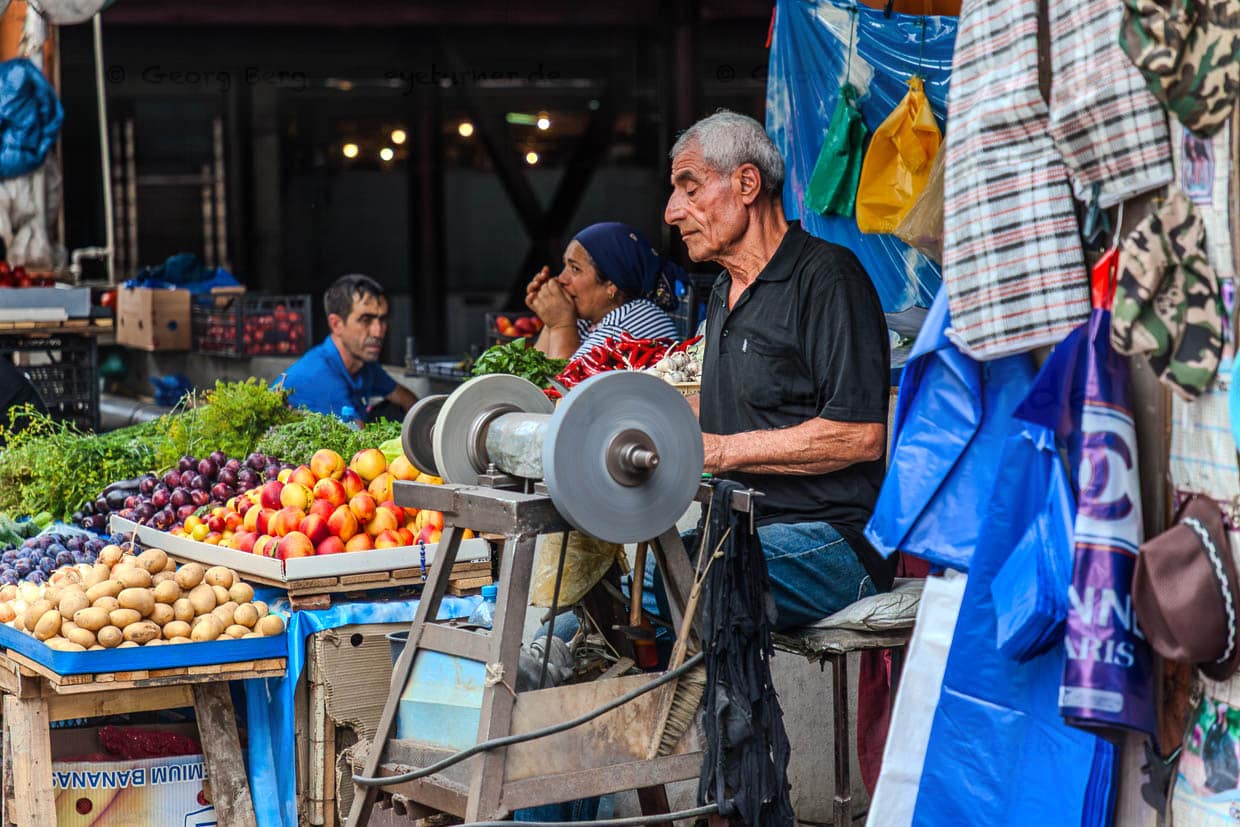
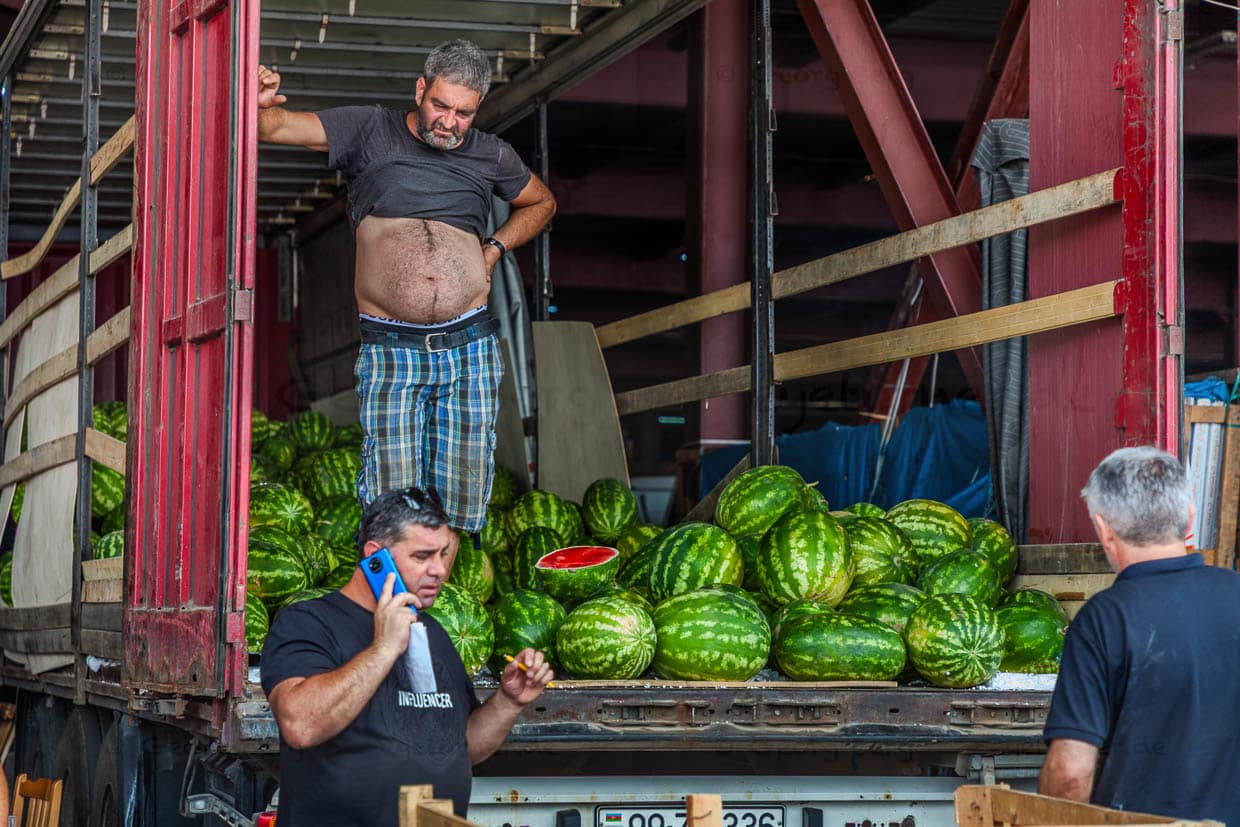
The Dezert market also offers homemade wines and chasha, a Georgian pomace brandy, which is often sold in recycled lemonade bottles.
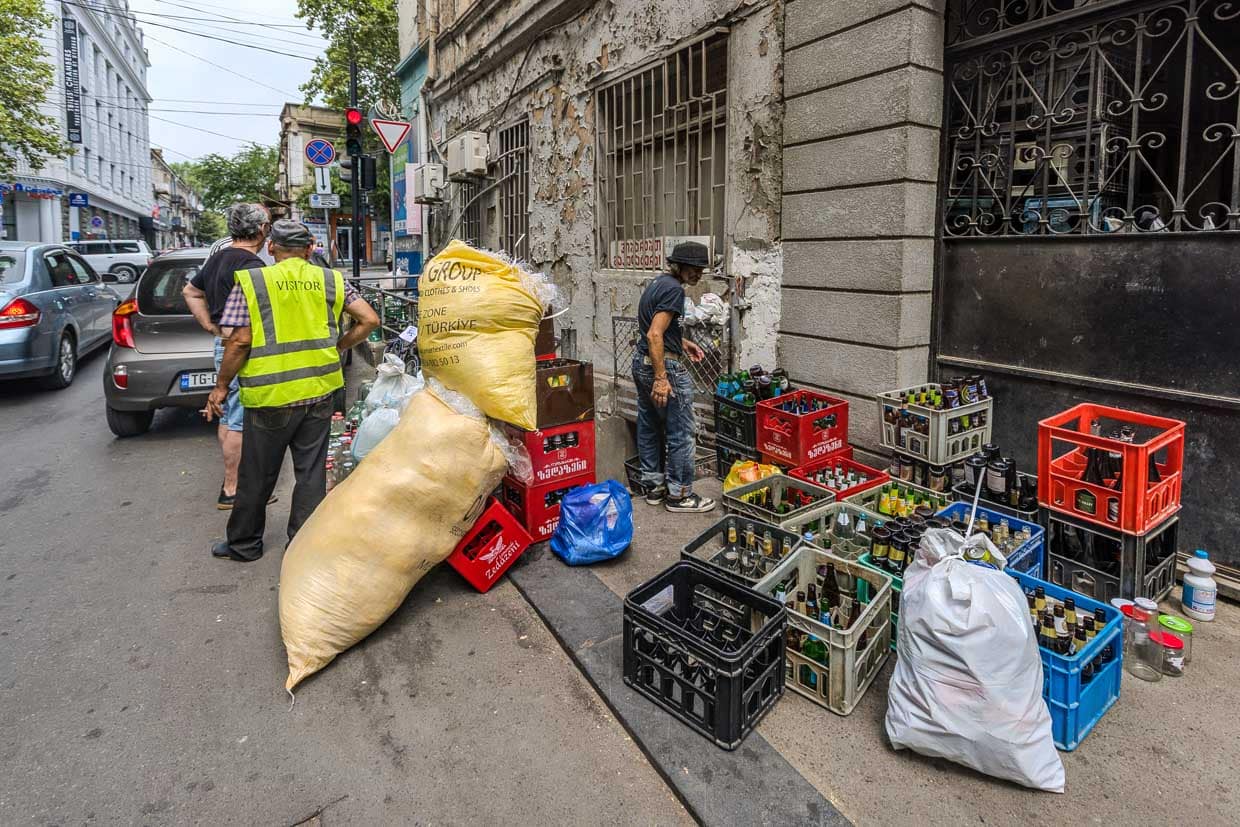
Best time to visit the Dezerter Bazaar
The Dezerter Bazaar is located north of the old town of Tbilisi on the eastern side of the Mtkvari River. There are many entrances, the main entrance is on Tsinamdzgvrishvili Street. The market is open daily from 7 am to 5 pm. It is busiest in the early morning hours. The flow of shoppers dies down around midday. Then, in the city’s restaurants, the freshly bought produce, such as crunchy cucumbers and deep red tomatoes, are mixed with a paste made from sunflower oil and walnuts to make the typical Georgian salad that is on almost every menu.
In the meantime, the global political poker game continues. A graffiti from Donald Trump’s first term as US president could hardly be more topical in 2024. Unfortunately, it has not yet been possible to wall up the two gentlemen. More political street art from Tbilisi.
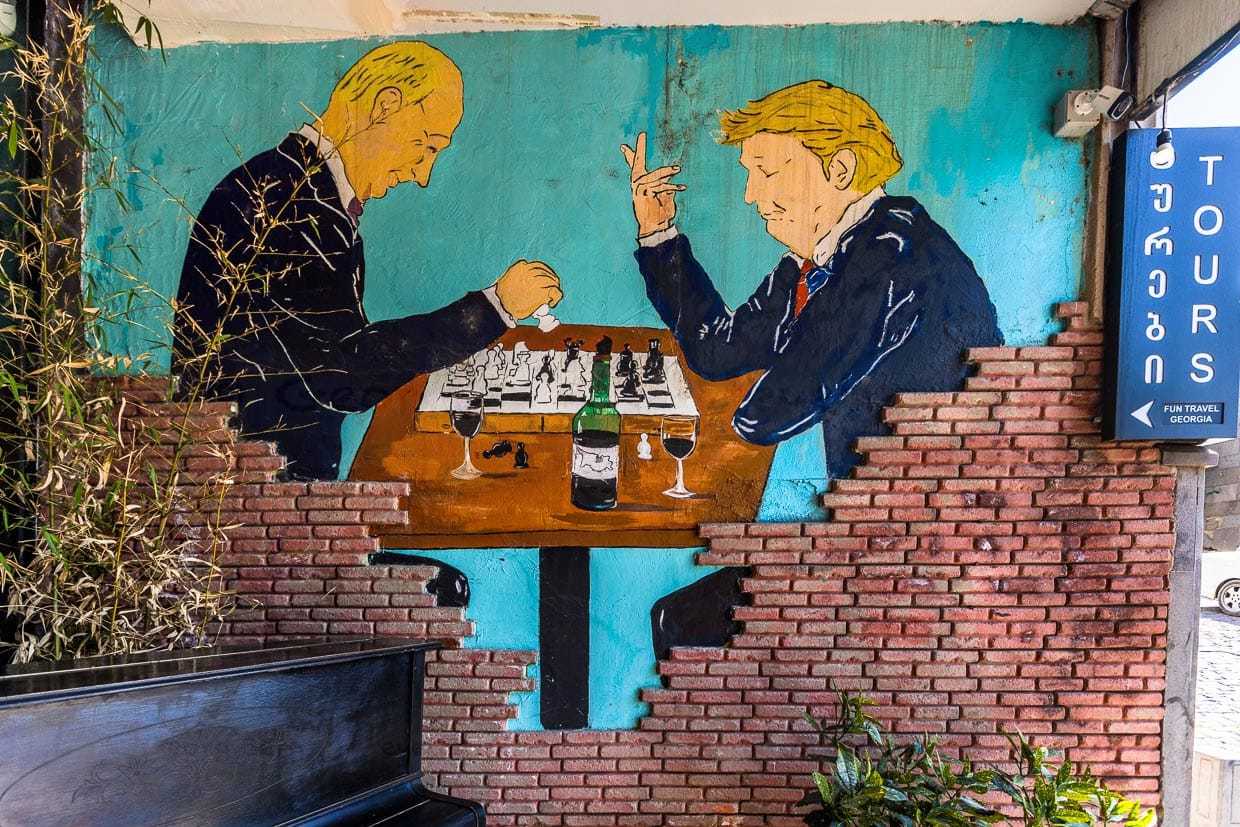
More stories from Georgia
In Georgia, we entrusted ourselves to Giorgi Chachua, who infected us with his enthusiasm for his home country on the trekking tour with packhorses through Tusheti. He is a qualified tour guide and co-owner of the Georgian travel agency Enjoy Georgia. Contrary to what the name suggests, many customers from German-speaking countries book here. The staff are flexible and communication is uncomplicated. As we didn’t have to organise our own luggage transport, catering and itinerary, we were able to fully immerse ourselves in the interesting information provided by the hiking guide. Bonus point: our Georgian guide had studied history. Georgia’s eventful history, the political street art or the parliaments under the open sky are just as much highlights of a trip to Georgia as the architecture of the sky bridges and the fantastic Dezerter food market in the capital Tbilisi. One of the most curious monuments can be found just outside the capital. The Chronicle of Georgia is visible from afar in its brute gigantomania. The fantastic Georgian cuisine and the hospitality of the people are also part of the travelling experience in Georgia.

